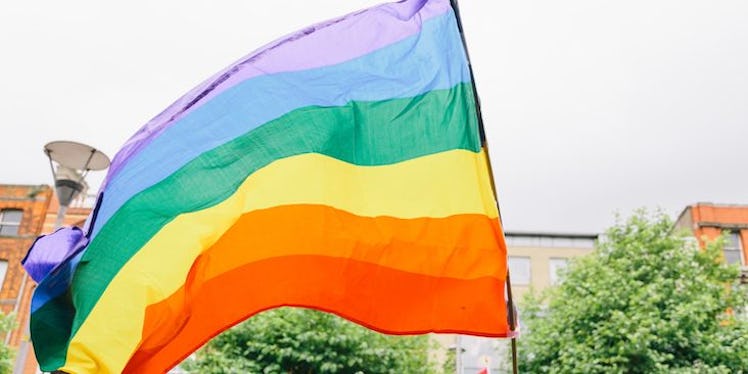
Why Is Pride Month In June? What You Should Know About The Stonewall Riots
June is the official Pride Month, created to acknowledge the lives of people who are part of the LGBTQ+ community, as well as their contributions to our country.
Former president Bill Clinton first established Gay & Lesbian Pride month in 2000 with his "Proclamation 7316," according to the Library of Congress.
Part of Bill Clinton's personal message read,
This June, recognizing the joys and sorrows that the gay and lesbian movement has witnessed and the work that remains to be done, we observe Gay and Lesbian Pride Month and celebrate the progress we have made in creating a society more inclusive and accepting of gays and lesbians.
This moment made Clinton the first president to show public support for LGBTQ+ rights.
After him, former president George W. Bush did not recognize Pride Month during either of his terms. Barack Obama, who was also the first president to support marriage equality, acknowledged Pride Month during every year of his two-term presidency — always in the month of June.
June was selected as the official Pride Month to celebrate the 1969 Stonewall riots.
The rebellion took place at the Stonewall Inn, located in New York City's Greenwich Village, which served as a safe hangout spot for LGBTQ+ individuals. The place was frequently raided by police, according to reports by the Gay & Lesbian Alliance Against Defamation (GLAAD) and other historical resources.
On June 28, 1969, members of the LGBTQ+ community decided to fight back against police, which was the first major public resistance against homophobic-driven discrimination.
The riots marked the start of the official LGBTQ+ rights movement, which empowered people, including allies, to resist oppression via larger public protests.
Activist organizations were inspired by the Stonewall Rebellion, including the Gay Liberation Front, which was the first group to use "gay" as a description, according to CivilRights.org.
The riots also began the tradition of pride parades, with the first ones held on the one-year anniversary of the Stonewall Rebellion in cities like Boston, Los Angeles and New York.
The Stonewall riots were kickstarted by trans women of color.
Two of the primary voices there were the then-25-year-old Marsha P. Johnson, a black trans woman who was there to celebrate her birthday, and Sylvia Rivera, a then 17-year-old trans Latina woman.
Rivera reportedly threw a bottle at police during the raid and also yelled during the rebellion,
I'm not missing a minute of this. It's the revolution!
The two women, who were friends, later founded the Street Transvestite Action Revolutionaries (STAR), which continued their work to champion the rights of the LGBTQ+ community and provided safe shelter for trans people who were displaced.
In 2015, the film Stonewall was released and heavily criticized for whitewashing the rebellion and leaving Rivera out of the narrative altogether.
Today, people celebrate Pride Month and lift up these brave activists.
There would be no Pride Month without Marsha P. Johnson, Sylvia Rivera, and the rest of the LGBTQ+ heroes who decided that on June 28, 1969, their freedom was not a privilege, but a right worth fighting for.